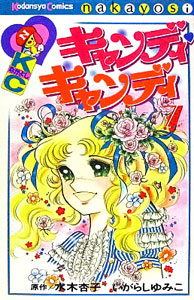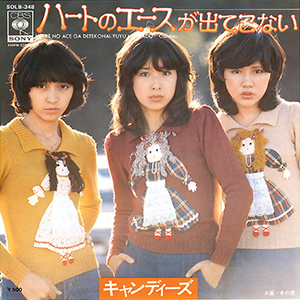
Barbie is a fashion doll created by American businesswoman Ruth Handler, manufactured by American toy and entertainment company Mattel and introduced on March 9, 1959. The toy was based on the German Bild Lilli doll which Handler had purchased while in Europe. The figurehead of an eponymous brand that includes a range of fashion dolls and accessories, Barbie has been an important part of the toy fashion doll market for over six decades. Mattel has sold over a billion Barbie dolls, making it the company's largest and most profitable line. The brand has expanded into a multimedia franchise since 1984, including video games, animated films, television/web series, and a live-action film.

A doll is a model typically of a human or humanoid character, often used as a toy for children. Dolls have also been used in traditional religious rituals throughout the world. Traditional dolls made of materials such as clay and wood are found in the Americas, Asia, Africa and Europe. The earliest documented dolls go back to the ancient civilizations of Egypt, Greece, and Rome. They have been made as crude, rudimentary playthings as well as elaborate art. Modern doll manufacturing has its roots in Germany, from the 15th century. With industrialization and new materials such as porcelain and plastic, dolls were increasingly mass-produced. During the 20th century, dolls became increasingly popular as collectibles.

A sex doll is an anthropomorphic sex toy in the size and shape of a sexual partner. The sex doll may consist of an entire body, or just a head, pelvis, or other body part intended for sexual stimulation. Sex dolls are made from various materials like silicone, TPE, or rubber to replicate a lifelike feel. These materials are chosen for their durability and realistic texture, enhancing the overall experience for users. The parts sometimes vibrate and may be moveable and interchangeable. Sex dolls exist in many forms, but are usually distinguished from sex robots, which are anthropomorphic creations designed to be able to engage in more complex interactions.

Kathryn Rosemary Bullard, known professionally as Katy Rose, is an American singer-songwriter, actress and producer. Rose released two studio albums, Because I Can and Candy Eyed. Since her last album, Rose has released eight independent singles.
Kintarō is a folk hero from Japanese folklore. A child of superhuman strength, he was raised by a yama-uba on Mount Ashigara. He became friendly with the animals of the mountain, and later, after catching Shuten-dōji, the terror of the region around Mount Ōe, he became a loyal follower of Minamoto no Yorimitsu under the new name Sakata no Kintoki. He is a popular figure in Bunraku and kabuki drama, and it is a custom to put up a Kintarō doll on Boy's Day in the hope that boys will become equally brave and strong.
Ayaka Komatsu is a Japanese model, gravure idol and actress. She was born in Ichinoseki, Iwate Prefecture.

Candy Candy is a Japanese series created by Japanese writer Keiko Nagita under the pen name Kyoko Mizuki. The main character, Candice "Candy" White Ardley, is a blonde girl with freckles, large emerald green eyes and long hair, worn in pigtails with bows. Candy Candy first appeared as a manga in April 1975, written by Mizuki and illustrated by manga artist Yumiko Igarashi, a collaboration which was put together by the Japanese magazine Nakayoshi who were interested in recreating a "masterpiece" manga in the same vein as Heidi, Anne of Green Gables and other famous classic titles of literature read predominantly by young girls. The manga series ran for four years, and won the 1st Kodansha Manga Award for shōjo in 1977. The story was adapted into an anime series by Toei Animation. There are also three animated short films.

Fujiya Co. Ltd. is a nationwide chain of confectionery stores and restaurants in Japan. Its first shop was founded in 1910 in Yokohama.

Mendel Palace is a 1989 puzzle video game developed by Game Freak. It was published in Japan by Namco and in North America by Hudson Soft. Mendel Palace is the debut game of Satoshi Tajiri and his company Game Freak. This success inspired him to create the Pokémon series.

"Barbie Girl" is a song by Danish-Norwegian dance-pop group Aqua. It was released in April 1997 by Universal and MCA as the third single from the group's debut studio album, Aquarium. The song was written by band members Søren Rasted, Claus Norreen, René Dif, and Lene Nystrøm, and was produced by the former two alongside Johnny Jam and Delgado. It was written after Rasted saw an exhibit on kitsch culture in Denmark that featured Barbie dolls. The accompanying music video was directed by Danish directors Peder Pedersen and Peter Stenbæk.
Eu Phoria was a Japanese all-female band, formed in 2002. They made their major debut in 2007 on Avex's label Sonic Groove. Their songs were used as the theme songs of various Japanese television dramas and variety shows such as Tokumei Kakarichō Tadano Hitoshi, Itadakimuscle, Junk Sports, and DOWN TOWN DX. The band's final performance was on October 31, 2009. Both Tomoko and Reona went on to join Gacharic Spin and Doll$Boxx.

"Heart no Ace Ga Detekonai" is the eighth single by Japanese music trio Candies. Written by Machiko Ryū and Kōichi Morita, the single was released on December 5, 1975.

"Shochū Omimai Mōshiagemasu" is the 15th single by Japanese music trio Candies. Written by Makoto Kitajō and Juichi Sase, the single was released on July 21, 1977. The song appeared on their 1977 album Candy Label.

Raggedy Ann and Raggedy Andy is a two-reel cartoon produced by Fleischer Studios and released on April 11, 1941. It was co-written by Johnny Gruelle's son, Worth. It was the first Paramount cartoon to feature Raggedy Ann. This cartoon marks the only appearances of her brother Raggedy Andy and The Camel with the Wrinkled Knees. The cartoon depicts Raggedy Ann and Andy as sweethearts as opposed to siblings in the books.

Chi chi dango is a soft, sweet type of Dango, a Mochiko dessert confection of Japanese origin. It is popular in Hawaii, particularly during Girl's Day celebrations.

Merryland is a fictional region neighboring the Land of Oz, created by author L. Frank Baum. It is bordered by Noland and the twin kingdoms of Hiland and Loland.

Gugure! Kokkuri-san is a Japanese manga series by Midori Endō, serialized in Square Enix's Gangan Joker since 2011. It has been collected in 12 tankōbon volumes until 2016 when it ended. An anime television series adaptation by TMS Entertainment aired in Japan from October to December 2014.

Girls' Frontline is a mobile strategy role-playing game for Android and iOS developed by China-based studio MICA Team, where players control echelons of android characters, known in-universe as T-Dolls, each carrying a distinctive real-world firearm. The game was released in Mainland China on 20 May 2016, in Hong Kong and Taiwan on 18 January 2017, and in South Korea on 30 June 2017. The global English version was released on 8 May 2018, while the Japanese version was released on 1 August 2018 under the title Dolls Frontline (ドールズフロントライン) due to the Girls' Frontline trademark in Japan already being held by another registrant.














